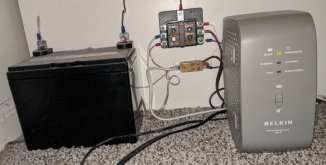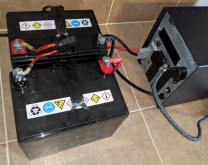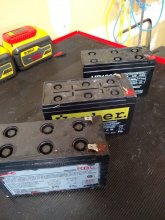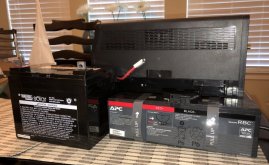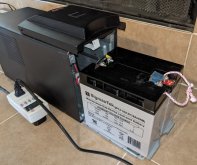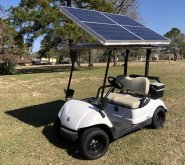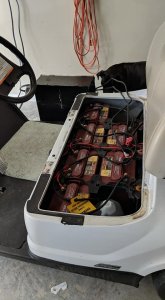Delmar
Solar Addict
One of the main advantages of LiFePO4 is not outgassing. The failure state of an older AGM battery is outgassing hydrogen (I had a 220Ah 48V bank fail and started outgassing). That alone would prevent me from wanting to mix the two.
Just FYI (also not trying to hijack this thread) - All the UPSs I've ever seen have sealed Lead Acid batteries, NOT AGMs. That it, they are flooded lead acid, but sealed just like the "maintenance free" batteries for cars. AGMs generally don't off-gas Hydrogen, as the Hydrogen is absorbed by the glass matts. However, everything I heard when I was putting in the AGM batteries in our solar was to expect some small amount of hydrogen.
There may be some UPSs with AGMs. I just haven't seen them. If you pull the plastic top off of the little 12V batteries you'll see 6 little rubber caps over the flooded cells.
Diverted from the This guy thinks outside the box adding lead to a LiFePO bank thread
I was very surprised to hear this as virtually all UPSs have AGM batteries, and are located inside homes & offices. I have three AGMs under my desk right now.
My favorite Harbor Freight sealed battery also states AGM construction. Will have to open the cover and inspect.



